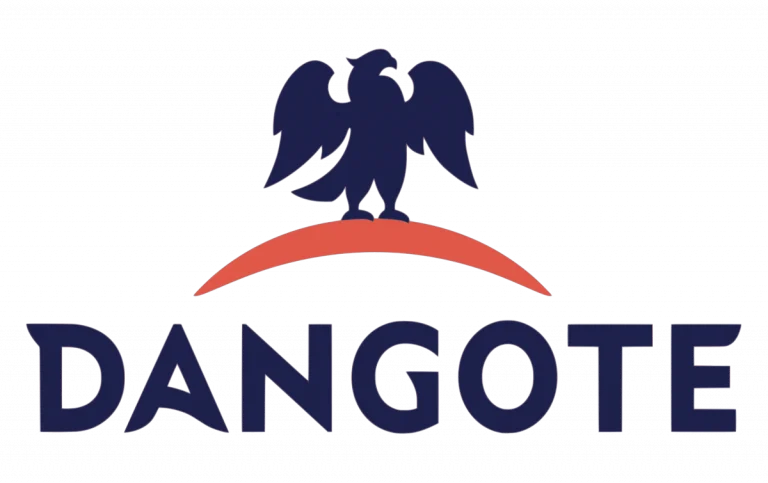Business
Telecom Operators Urge FG To Cut Taxes To Boost Investments

The Global System for Mobile Communications Association has urged the Federal Government to reduce telecom taxes to encourage investments and boost the country’s digital economy.
According to Angela Wamola, The Head of Sub-Saharan Africa at GSMA, Nigeria’s complex and burdensome tax regime is hindering the telecom sector’s ability to invest in infrastructure, expand services, and contribute to the country’s economic development.
The GSMA official said in a note shared with Newsmen on Wednesday that the rising operational costs, driven by increasing energy prices, have placed considerable strain on telecom operators.
Wamola explained that the situation was further exacerbated by the difficulty in accessing foreign currency, which is essential for importing the equipment needed to expand and maintain network infrastructure.
“These challenges are not unique to Nigeria; many African markets face similar issues. However, Nigeria’s complex and burdensome tax regime presents additional, country-specific obstacles that severely limit the sector’s potential,” the GSMA chief detailed.
Nigeria’s telecommunications sector has experienced a slowdown in growth and contribution to the country’s GDP in recent years. This decline is attributed to significant financial losses and deteriorating performance among telecom operators.
In 2023, telecommunications companies in Nigeria paid a total of approximately N2.4tn in taxes, a digital economy report from the Groupe Special Mobile Association showed.
This figure represents a significant contribution to the Nigerian economy, as the telecom sector generated around N33tn, accounting for 13.5 per cent of the country’s Gross Domestic Product (GDP) during the year.
READ ALSO: FG May Consider Reduction In Withholding Tax For Telcos
Although the sector has enormous potential, according to Wamola, it is also pressed by the high cost of the right-of-way (RoW) charges, which vary drastically from state to state.
RoW charges are fees paid by telecom operators to landowners or authorities for the use of their land or property for infrastructure deployment.
The GSMA official lamented that despite a 2020 agreement among state governors to set the RoW charge at 145 naira per meter, many states have failed to comply with this rate.
According to her, this non-adherence has resulted in escalated costs for infrastructure deployment, with RoW charges now ranging from 1 per cent to 70 per cent of the additional costs of fiber optic installations, depending on the state.
The GSMA boss noted that this inconsistency not only hinders the deployment of vital infrastructure like fiber optics but also threatens the sector’s ability to finance necessary expansions.
However, if the agreed-upon rate of 145 naira per meter were uniformly applied, the GSMA official said that the cost of deploying fiber across the country could decrease by 15 per cent, making it more feasible for operators to invest in expanding their networks.
Wamola recommended that the government streamline taxes, harmonize right-of-way charges, and reduce multiple levies to encourage investment and enhance digital inclusion.
She argued that reforming telecom taxes would not only benefit the sector but also enhance economic growth, improve connectivity, and increase access to digital services for millions of Nigerians.
Business
NNPCL Announces Restoration Of Escravos-Lagos Pipeline

The Nigerian National Petroleum Company Limited (NNPCL) has announced the complete restoration of the Escravos-Lagos Pipeline System (ELPS) in Warri, Delta State, following the recent explosion on the asset.
The chief corporate communications officer (CCCO) of the nation’s oil company, Andy Odeh, in a statement, said that the pipeline is fully operational, reiterating the company’s resilience and commitment to energy security.
“NNPC Limited is pleased to announce the successful restoration of the Escravos-Lagos Pipeline System (ELPS) in Warri, Delta State.
READ ALSO:Fuel Price Cut: NNPCL GCEO Ojulari Reveals Biggest Beneficiaries
“Following the unexpected explosion on December 10, 2025, we immediately activated our emergency response, deployed coordinated containment measures, and worked tirelessly with multidisciplinary teams to ensure the damaged section was repaired, pressure-tested, and safely recommissioned.
“Today, the pipeline is fully operational, reaffirming our resilience and commitment to energy security. This achievement was made possible through the unwavering support of our host communities, the guidance of regulators, the vigilance of security agencies, and the dedication of our partners and staff.
“Together, we turned a challenging moment into a success story, restoring operations in record time while upholding the highest standards of safety and environmental stewardship.
“As we move forward, NNPC Limited remains steadfast in its pledge to protect our environment, safeguard our communities, and maintain the integrity and reliability of our assets. Thank you for your trust as we continue to power progress for Nigeria and beyond,” the statement read.
Business
Dangote Unveils 10-day Credit Facility For Petrol Station Owners

The Dangote Group has announced a 10-day credit facility backed by a bank guarantee for petrol station owners and dealers, alongside free direct delivery and other incentives, as part of a new supply arrangement.
The company disclosed this in a statement posted on its official X handle on Tuesday, inviting petrol station operators across the country to register to benefit from the offer.
According to the statement, participating dealers will enjoy “a 10-day credit facility backed by a bank guarantee,” with a minimum order requirement of 5,000 litres.
“Our free direct delivery service will commence soon,” the group said, adding that the offer is open to “all petrol station owners and dealers.”
READ ALSO:Dangote Sugar Announces South New CEO
The Dangote Group further called on operators to register their stations to access the supply arrangement.
“Register your petrol stations today to benefit from our competitive gantry price,” the statement read.
The company also disclosed that petrol supplied under the arrangement will be sold at a gantry price of ₦699 per litre.
For enquiries, the group provided the following contact numbers: 0802-347-0470, 0809-324-7070, 0809-324-7071 and 0203.
READ ALSO:Dangote Refinery Dispute: PENGASSAN Suspends Strike After FG Intervention
The announcement follows a recent petrol price adjustment by the Dangote Petroleum Refinery.
The PUNCH earlier reported that the refinery reduced its ex-depot petrol price from ₦828 to ₦699 per litre, representing a ₦129 cut or a 15.58 per cent reduction.
An official of the refinery, who spoke to PUNCH Online on condition of anonymity, confirmed the adjustment, saying, “The refinery has reduced petrol gantry price to ₦699 per litre.”
The new price reportedly took effect on December 11, 2025, marking the 20th petrol price adjustment announced by the refinery this year.
Business
JUST IN: Otedola Sells Shares In Geregu Power For N1trn

Billionaire businessman, Femi Otedola, has sold his majority stake in Geregu Power Plc for N1.088 trillion in a deal financed by a consortium of banks led by Zenith Bank Plc.
The Nigerian Exchange, NGX, made this announcement on Monday.
Otedola’s Amperion Power Distribution Company Ltd reportedly held nearly 80 percent of the power generating company.
READ ALSO:N200b Agric Credit Dispute: Appeal Court Slams NAIC, Upholds First Bank Victory
With this new development, Otedola, Chairman of First Holdco Ltd, parent company of First Bank of Nigeria Plc, will reportedly now concentrate on expanding his interest in the Nigerian banking sector, although he still retains some shares in Geregu.
Otedola is said to currently own 17.01 percent of First Bank — its single largest shareholder since the bank was established in 1894.

 Headline4 hours ago
Headline4 hours agoPROPHECY: Primate Ayodele Reveals Trump’s Plot Against Tinubu

 Politics5 hours ago
Politics5 hours agoWhy Kano Governor Postponed Formal Defection To APC

 News3 hours ago
News3 hours agoWhat I Saw After A Lady Undressed Herself — Pastor Adeboye

 Metro5 hours ago
Metro5 hours agoJoint Task Force Kills 23 Bandits Fleeing Kano After Attacks

 Politics4 hours ago
Politics4 hours ago2027: Rivers APC Pledges To Follow Wike’s Instructions

 Metro3 hours ago
Metro3 hours agoGunmen Demand N200m Ransom For Kidnapped Brothers In Edo

 Metro3 hours ago
Metro3 hours agoArmed Robbers Shot PoS Operator To Death In Edo

 News4 hours ago
News4 hours agoReps Release Four Tax Acts For Public Records

 Entertainment4 hours ago
Entertainment4 hours agoPHOTOS: Anthony Joshua Makes First Social Media Post After Surviving Deadly Car Crash

 News5 hours ago
News5 hours agoNiMet Forecasts Three-day Dust Haze, Sunshine




























